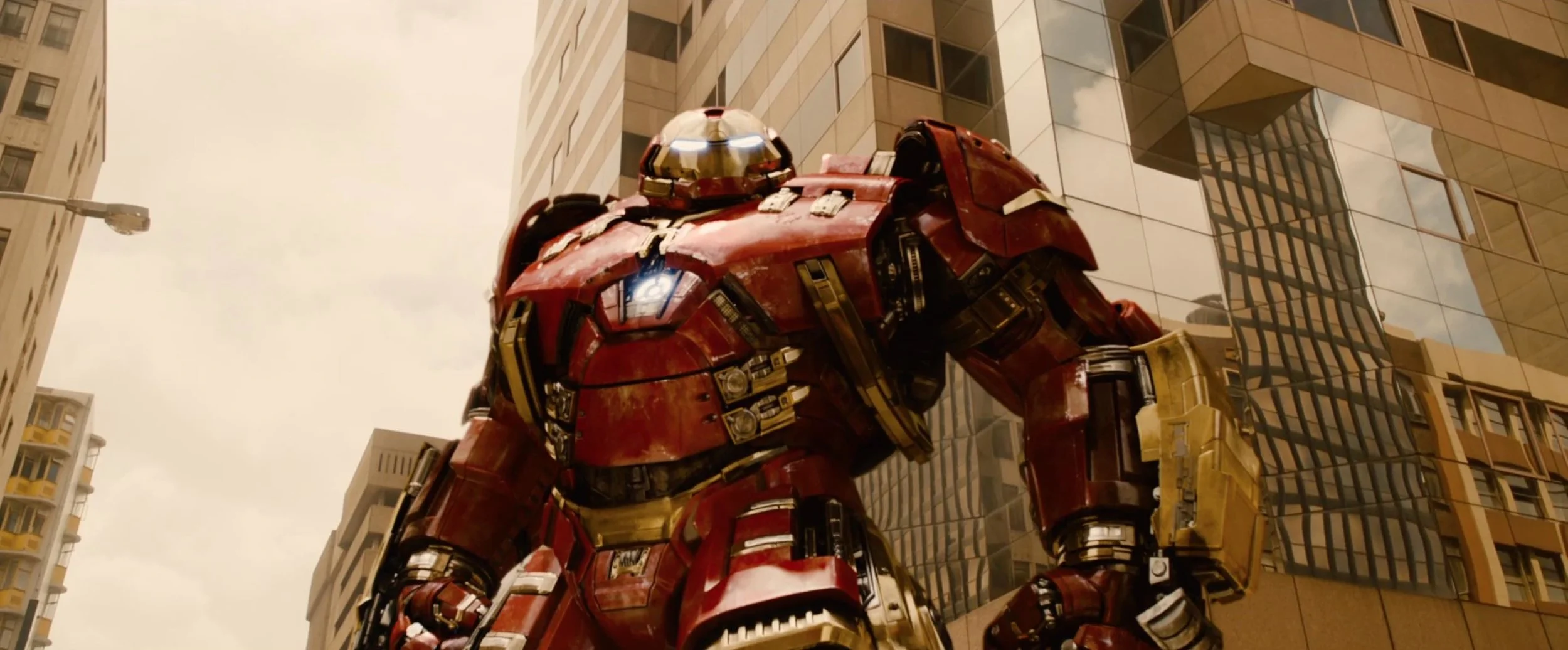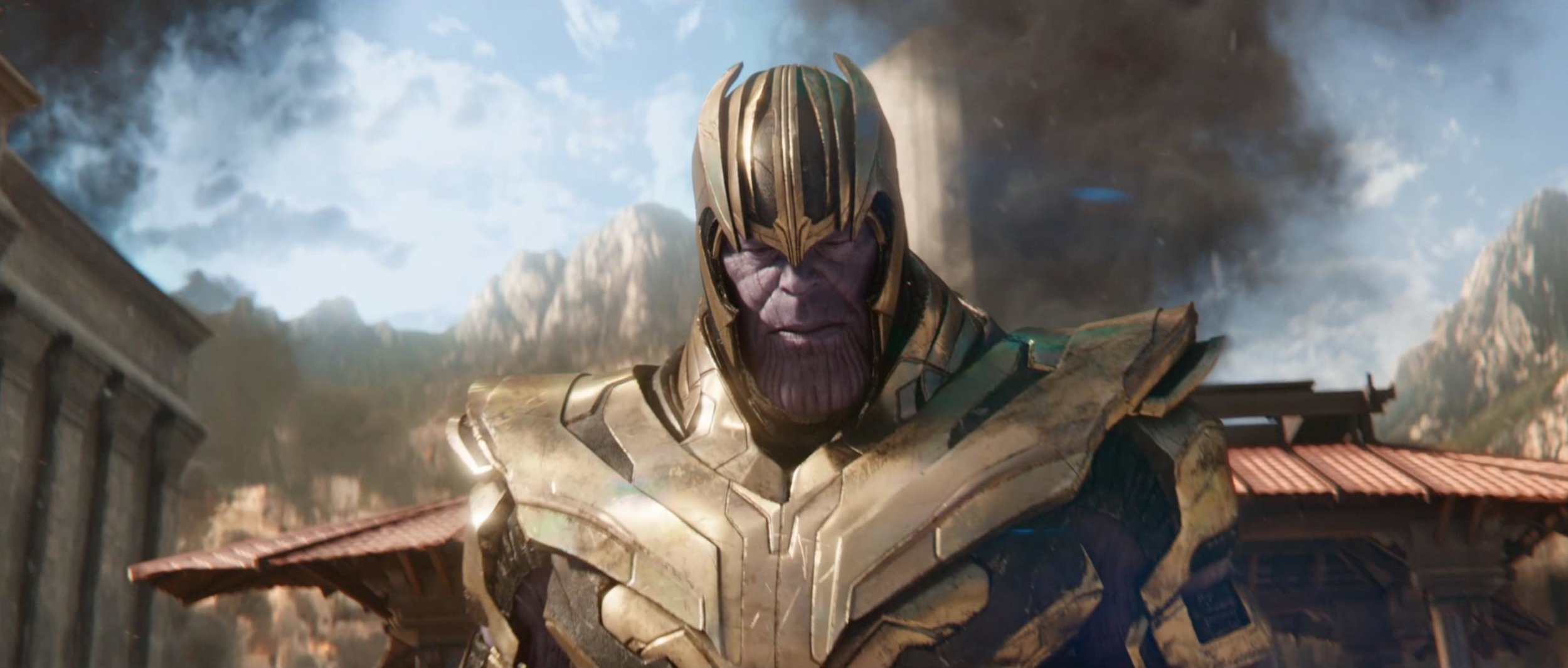Planning a Trailer Campaign Part 1 of 5 - Infinity War
How do you sustain audience attention when your trailer campaign lasts a year or more? I frequently think about this when creating and analyzing trailer campaigns for movies and games.
I talked a little about this in my post about what makes a good teaser trailer. A good teaser is the first step of the campaign, but what should the 2nd or 3rd trailer do? Movies tend to max out around 3 trailers, but video games sometimes have 3-5 before launch!
This is the first of a 5 part series where I analyze a handful of trailer campaigns that are very different in structure. These won't be prescriptive per se since there are so many variables that factor into a successful game launch or movie release, but I think it'll be interesting to a look at how audience interest is affected by variations in the content of individual trailers, and their proximity to each other. I'm going to use a very scientific sample size of one (myself).
Honestly, shots like these are like Darth Maul's dual-sided lightsaber; they could be the only thing you show in a teaser and you'd be fine.
Here are the trailer campaigns I'm going to take a look at:
Part 1 - Avengers: Infinity War
Part 2 - Firewatch
Part 3 - Hotline Miami
Part 4 - Deus Ex: Human Revolution
Part 5 - BattleBlock Theater
Infinity War took the most traditional approach to a trailer campaign. Start with a teaser that provides a shallow surface level overview, and then create a trailer to give a deep view of the movie or game. Most trailer campaigns for highly anticipated blockbuster films follow this structure.
This approach sustains audience attention by slowly revealing the details. If the first teaser doesn't show much, then of course a full trailer will interest an audience (assuming they liked the teaser). The problem is you can only take this so far. It's unfeasible to continue revealing more and more until the release, especially because each trailer will need to recap the basic premise. Therefore, this can only genuinely retain audience interest for a couple trailers, MAYBE three trailers.
As an example let's contrast the campaigns for Avengers: Infinity War and Age of Ultron.
This is an example of a great image for a teaser where the number of shots is limited. This tells a story all on its own.
Age of Ultron's trailers released in this order:
October 2014 - Trailer 1
January 2015 - Trailer 2
March 2015 - Trailer 3
May 2015 - Movie Release
The teaser for Age of Ultron starts with a grandiose villain monologue about people crying out, how the heroes fear change, and how they're all puppets on strings. Villain monologues are always great fodder for either a teaser trailer or third act climax of a full trailer.
Then per the trailer music trend of the time we get a dark cover version of the song "I've Got No Strings" from Pinocchio. There's no dialogue in this montage, just a lot of imagery. After the release date title card we get more grandiose hero dialogue from Tony Stark and Black Widow. This dialogue tells us nothing about the story, but vague dialogue always sounds epic, kind of like when movie kung fu masters sound deep by speaking in vagaries.
There's a lot of epic imagery like the Hulk Buster, new characters with powers, and it all ends on the ominous note of the robot saying there are no strings on it. Now let's look at the next trailer:
The trailer starts with a more subtle arrangement of "I've Got No Strings" cut with Tony's dialogue implying that he created Ultron. The gist of this trailer is that Tony did something bad, and now it's out. Ultron threatens to tear them apart (in a roughly frankenstein-ed line of dialogue), and we see some examples of fighting within the group; Thor chokes Tony, and Tony fights the Hulk in his Hulk Buster suit.
The tone still feels very teaser-like because the music never fully "kicks in" but we get a slightly deeper look into the story. We now know that Tony is responsible for Ultron, Ultron is causing strife in the group, and there are lots of robot minions to fight. Only two months later another trailer was released!
The final trailer starts with Ultron talking about his creation and what he's going to do. After some threatening words and action bits we're back with Tony talking about creating an artificial intelligence. Already this is retreading a lot of ground, but the music is much more like a full epic trailer.
There's very little in the way of new story introduced in this. I'm curious why the previous trailer was even made. The direction is essentially the same as the previous trailer, but this one features more action and more epic music. A lot of the same shots or scenes are in both trailers, which is something I worry about a lot when making my own trailers. I think the audience can't help but get a touch bored or disappointed whenever they see repetition between trailers.
While the second trailer built upon the teaser, this one feels like it's remaking rather than building on the second trailer. But since the trailer producers are keen to keep the story vague, that means none of the plot details revealed in this final trailer are all that interesting. I find these two trailers and their similarities end up slowing down some of the momentum of this campaign.
This was a big reveal in the first teaser, so by the third time we see Ultron in the campaign it doesn't feel new anymore.
Now contrast this with a look at Infinity War's trailer campaign which progressed in this order.
November 2017 - Teaser Trailer
February 2018 - Super Bowl TV Spot
March 2018 - Final Trailer
April 2018 - Release
The teaser and Super Bowl spot were released three months apart, but in terms of their story content I think they're functionally the same. You might think: "You just talked about how two similar trailers slowed the momentum, why is this okay?" Ironically I think their similarities here are okay because it doesn't feel like one is supposed to be telling more, so my expectations are different. Also, the Super Bowl spot is shorter, so the audience doesn't have much time to get impatient at seeing the same shots.
The teaser starts with Nick Fury's voiceover about the original idea of the Avenger Initiative, but this time it's cut together with voiceover from other members of the team. This is to say: "Everything has led up to this." They even show nearly the entire Marvel logo to emphasize how momentous this occasion is.
This is followed by Thanos' threatening monologue saying that despite everything, they're all going to lose and there's nothing they can do about it. We get a bit of dialogue from T'Challa that ostensibly says: "Get ready." Then there's a final bit of dialogue from Thanos where he says he's pleased with how things are going.
The music for the entire teaser builds up until the final Avengers theme song over the title. Then we get a button teaser of Thor meeting the Guardians of the Galaxy. This teaser is essentially a check-in with all the characters we're hoping to see in the film; it says to the audience: "Yes, they're all here!" Now take a look at the full trailer:
The trailer starts off with Gamora dumping some exposition about Thanos. He wants to wipe out half the universe, and if he gets all the infinity stones he can do just that. We then get Tony Stark proposing their plan of attack which isn't actually described, so all we know is they're planning something. This is followed by Thanos reiterating the threat Gamora said he poses to the universe.
This trailer doesn't delve deep into specifics of the plot, but it shows a LOT more action. The teaser had very few in the way of money shots, but there's so much variety in this one with just about all the characters and a promise of some sort of final confrontation between Captain America and Thanos.
Even between the teaser and this trailer there are already quite a few settings that are revisited. If there was a third trailer that would have to show so much more, and would still end up retreading a lot of ground even if the shots were unique. But as it is, it provides a sampler plate of the set piece moments framed by the basic idea that the heroes are going to fight the big bad. I think this campaign successfully teased, then sealed the deal with an even bigger plate of treats whereas Age of Ultron's began to feel stale from just one additional trailer.
Even this shot of Thanos in full armor makes it feel like you're seeing "more" in this trailer just because in the teaser he didn't wear it.
When planning trailer campaigns it's important to assess what's already been communicated to avoid new trailers feeling at all stale. This is while keeping in mind that no matter how hard you try, each trailer will still have a measure of overlap. The lesson here seems to be: if your strategy is to build upon previous trailers, make the campaign SHORT.
Video games are also in a unique position of generally having a much longer span of time from announcement to release. Movie trailer campaigns last about half a year, but games can go on for multiple years! I talked a bit about this in my post about making the E3 2018 trailer for Ooblets. I think it's ideal for game trailers to show an amount of new content relative to when the previous trailer came out. As the audience, it's frustrating to see repeats of previous footage, but waiting an entire year only to see something that looks about the same is even MORE frustrating. After seeing two similar trailers a year apart I think you can't help but wonder if the game even has more to show if it "progressed" so slowly between trailers.
This is why for games especially there are a variety of approaches I've seen for trailers. In part 2 of this series I talk about Firewatch, which I worked on starting with its full trailer and then finished up with subsequent trailers.




